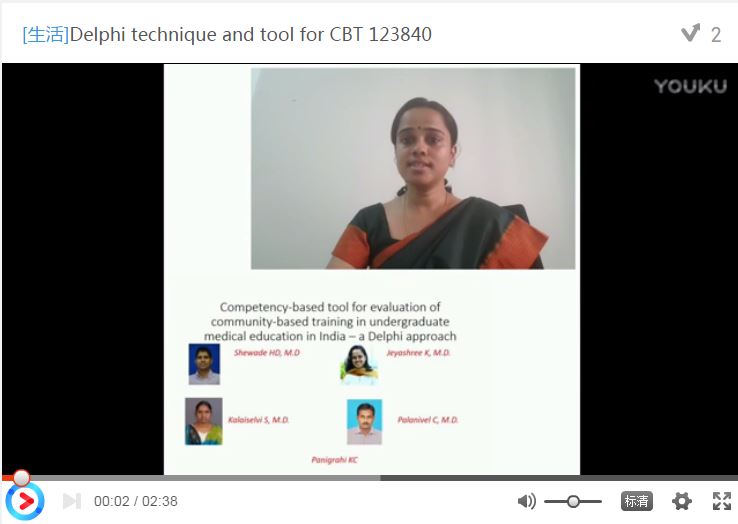9 0 6 7 6
论文已发表
注册即可获取德孚的最新动态
IF 收录期刊
- 2.6 Breast Cancer (Dove Med Press)
- 3.9 Clin Epidemiol
- 3.3 Cancer Manag Res
- 3.9 Infect Drug Resist
- 3.6 Clin Interv Aging
- 4.8 Drug Des Dev Ther
- 2.8 Int J Chronic Obstr
- 8.0 Int J Nanomed
- 2.3 Int J Women's Health
- 3.2 Neuropsych Dis Treat
- 4.0 OncoTargets Ther
- 2.2 Patient Prefer Adher
- 2.8 Ther Clin Risk Manag
- 2.7 J Pain Res
- 3.3 Diabet Metab Synd Ob
- 4.3 Psychol Res Behav Ma
- 3.4 Nat Sci Sleep
- 1.9 Pharmgenomics Pers Med
- 3.5 Risk Manag Healthc Policy
- 4.5 J Inflamm Res
- 2.3 Int J Gen Med
- 4.1 J Hepatocell Carcinoma
- 3.2 J Asthma Allergy
- 2.3 Clin Cosmet Investig Dermatol
- 3.3 J Multidiscip Healthc

Competency-based tool for evaluation of community-based training in undergraduate medical education in India – a Delphi approach
Authors Shewade HD, Jeyashree K, Kalaiselvi S, Palanivel C, Panigrahi KC
Received 4 October 2016
Accepted for publication 27 January 2017
Published 10 April 2017 Volume 2017:8 Pages 277—286
DOI https://doi.org/10.2147/AMEP.S123840
Checked for plagiarism Yes
Review by Single-blind
Peer reviewers approved by Dr Robert Robinson
Peer reviewer comments 4
Editor who approved publication: Dr Anwarul Azim Majumder
Introduction: A
community-based training (CBT) program, where teaching and training are carried
out in the community outside of the teaching hospital, is a vital part of
undergraduate medical education. Worldwide, there is a shift to
competency-based training, and CBT is no exception. We attempted to develop a
tool that uses a competency-based approach for assessment of CBT.
Methods: Based on a review on competencies, we prepared a
preliminary list of major domains with items under each domain. We used the
Delphi technique to arrive at a consensus on this assessment tool. The Delphi
panel consisted of eight purposively selected experts from the field of
community medicine. The panel rated each item for its relevance, sensitivity,
specificity, and understandability on a scale of 0–4. Median ratings were
calculated at the end of each round and shared with the panel. Consensus was
predefined as when 70% of the experts gave a rating of 3 or above for an item
under relevance, sensitivity, and specificity. If an item failed to achieve
consensus after being rated in 2 consecutive rounds, it was excluded. Anonymity
of responses was maintained.
Results: The panel arrived at a consensus at the end of 3
rounds. The final version of the self-assessment tool consisted of 7 domains
and 74 items. The domains (number of items) were Public health – epidemiology
and research methodology (13), Public health – biostatistics (6), Public health
administration at primary health center level (17), Family medicine (24),
Cultural competencies (3), Community development and advocacy (2), and Generic
competence (9). Each item was given a maximum score of 5 and minimum score of
1.
Conclusion: This is the first study worldwide to develop a tool
for competency-based evaluation of CBT in undergraduate medical education. The
competencies identified in the 74-item questionnaire may provide the base for
development of authentic curricula for CBT.
Keywords: competency-based education,
questionnaire design, Delphi technique, community medicine, community
education, India
摘要视频链接:Delphi technique and tool for
CBT
